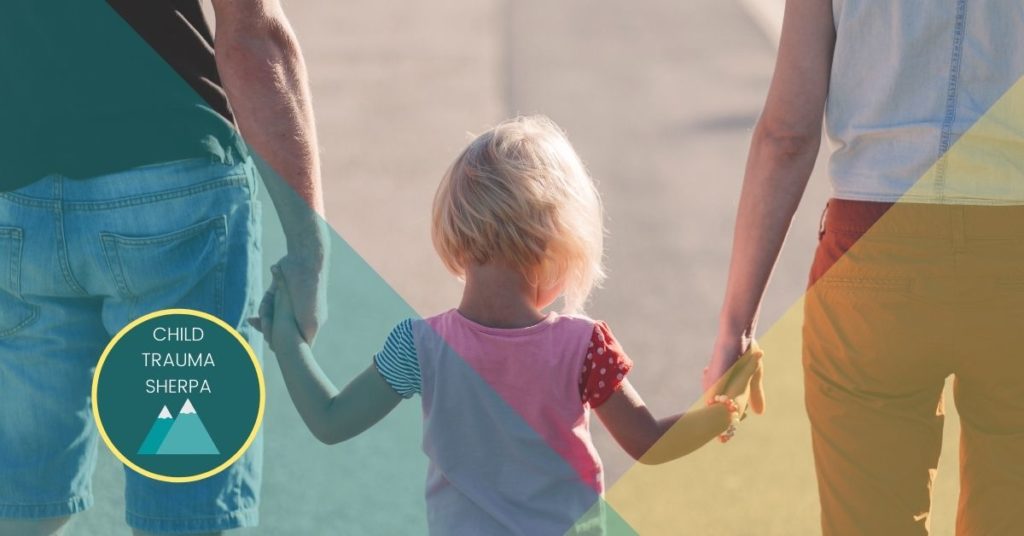And the Types of Dysfunctional Attachments Children with Trauma May Form
At its core, childhood trauma is about relationships. More specifically, it is about broken trust in authority figures. Types of childhood trauma include abuse (physical and emotional), neglect, and general household dysfunction (divorce, witnessing the abuse of a parent or dealing with a parent who suffers from a mental health disorder, substance abuse or who is in prison).
This type of abuse can have long-term effects that shape a person’s sense of self and the world around them. One of the most tragic consequences of childhood trauma is the impact it has on interpersonal relationships. Because it disrupts the healthy development of interpersonal relationships in one’s formative years, it can deeply compromise the ability to form and maintain healthy relationships even well into adulthood.
Attachment Disruption
Human beings are innately social. From the time we are born, our identity and our ability to make sense of the world around us are continuously shaped by our social interactions. The most significant interactions typically occur in early childhood, when an attachment to caregivers first forms.
Attachment is an emotional bond that is formed in order to establish a sense of security and safety. But when a child experiences abuse or trauma, they are unable to form a healthy attachment, which is also known as attachment disruption. This has a domino effect on future interpersonal relationships.

The Impacts of Childhood Trauma on Interpersonal Relationships
When a child is unable to form a healthy attachment to a caregiver, this can lead to dysfunctional attachment styles. These include:
- An inability to trust: Being able to trust others is key to forming healthy relationships. However, childhood trauma severely diminishes or altogether removes the ability to trust authority figures. As a result, your adopted child with trauma may be reluctant to form relationships for fear they will be betrayed or harmed. They are often closed off, guarded, or hypervigilant and this results in not being able to form meaningful relationships.
- Avoidant attachment: Some survivors of childhood trauma may also consciously or unconsciously avoid attachment to others altogether. This is often driven by an inability to trust others, but it also is a result of the self-reliance that many children with trauma had to develop. This translates to social avoidance or emotionally distant relationships.
- Ambivalent attachment: This style of dysfunctional attachment is often observed in children with trauma who experienced an abuser who switched between responsiveness and neglect. This can result in relationships where the child with trauma is watchful of change in their relationships to the point of paranoia. They may also feel like they give more in a relationship than they get in return, have low self-esteem, and have high levels of emotional dysregulation. This manifests in deep insecurity and clinginess in relationships as well as feelings of frustration and vulnerability.
- Disorganized attachment: Those who suffer from this type of dysfunctional attachment are deeply fearful of relationships while also craving emotional closeness. They are afraid of a deeper bond (or intimacy in older children and adults) while also being afraid of ending up alone. This results in being reluctant to show affection to others while also lashing out if they feel ignored or unloved. This behavioral pattern, compounded by poor emotional regulation skills, a deep distrust for others, and difficulty understanding social cues, can lead to significant barriers in forming and maintaining healthy relationships.
Healing from Childhood Trauma
If your adopted child is having difficulty forming healthy relationships, know that there is hope in healing! The brain is resilient and while childhood trauma is an actual brain injury that changes how the brain functions, the brain is also constantly healing itself at least up through the age of 25. This means that with treatment and support, a child can overcome their past trauma.
There are several types of therapies that can be used to help treat childhood trauma and the resulting inability to form healthy relationships. Understand that healing from childhood trauma can be difficult because it involves addressing painful memories. Also, the interpersonal dysfunction caused by trauma can make your adopted child reluctant to engage in the therapeutic process.
By seeking out trauma-informed care for your adopted child with trauma, you will begin that healing process. Take this healing process beyond the therapist’s office by providing your child with a safe and supportive environment where their feelings are validated and understood. You must give them the time they need to work through their trauma at their own pace. With patience, support and unconditional love, you will begin to see remarkable changes in your child with trauma!

